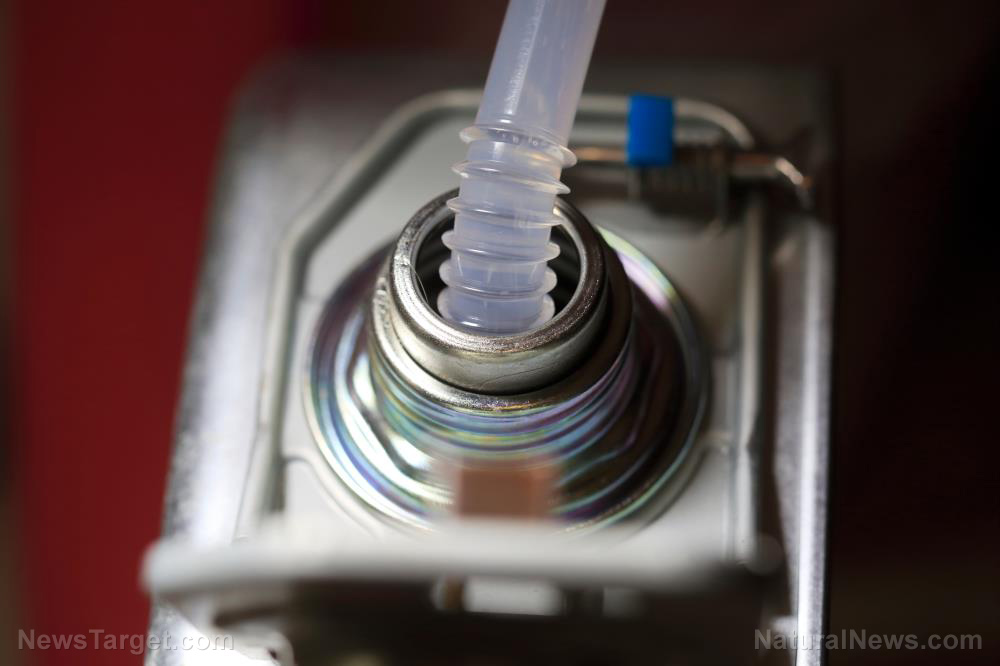Nearly all committee members who advise on U.S. dietary guidelines have ties to Big Pharma
03/31/2022 / By Ethan Huff

A new study published in the journal Public Health Nutrition has found that the people crafting the official Dietary Guidelines for Americans, which forms “the foundation for all national nutrition programs,” are almost all pharmaceutical industry goons.
Researchers say it is “particularly worrisome” that the very people advising the country on what to eat have direct conflicts of interest with an industry that profits from illness.
Nineteen of the 20 members who sit on the government-run committee for establishing dietary guidelines for America have at least on conflict of interest. Many of them have multiple conflicts of interest with not only Big Pharma but also Big Food and Big Agriculture.
“The U.S. Dietary Guidelines for Americans Advisory Committee (DGAC) sets the guidelines used by U.S. policymakers, healthcare providers, nutrition educators and federal nutrition program operators, including those responsible for school lunch programs, on what foods and beverages ‘meet nutrient needs, promote health and prevent disease,'” reports The Defender.
The study found that a shocking 129 industry actors have relationships with the 20 DGAC members, based on conflicts of interest disclosures submitted by said members.
This is a serious matter of concern for public health, seeing as how the DGA governs nutrition programs all around the world that amount to nearly $100 billion annually.
The DGA also offers guidance to state and local governments, healthcare professionals, hospitals and community groups with “overarching dietary recommendations” that heavily steer people to eat a certain way.
“Trustworthy dietary guidelines result from a transparent, objective, and science-based, process,” the study explains.
“Our analysis has shown that the significant and widespread COI on the committee prevent the DGA from achieving the recommended standard for transparency without mechanisms in place to make this information publicly available.”
“Our findings here are particularly worrisome, as industry influence and COI can result in diverting the scientific process underpinning the U.S. national dietary guidelines, to one that is responsive to profit-driven interests rather than the public health.”
Cambridge University Press published the study on behalf of The Nutrition Society, a U.K.-based nonprofit organization with a mission to advance the scientific study of nutrition.
Latest DGAC report advises mothers against breastfeeding their babies, says industrial formula is better
The first convention of the DGAC was in 1977. It operates under the jurisdiction of the U.S. Department of Agriculture (USDA) and the U.S. Department of Health and Human Services (HHS).
The first report from the DGAC was published in 1980. Every five years since that time, that report is revised and re-released with any new information that comes down the pike.
The latest version of the report, issued in July 2020, resulted in the publication later that year of the ninth version of the Dietary Guidelines for Americans. It contains updates urging mothers to no longer breastfeed their babies, and instead feed them store-bought formula.
It turns out that the DGAC’s Pregnancy and Lactation Subcommittee has six members, four of whom have ties to manufacturers of breastmilk substitutes, as well as to corporate giants Mead Johnson, Wyeth and Abbott.
“There is evidence that those companies producing breastmilk substitutes regularly use science and try to influence policy in order to protect and promote the sales of their products, and their relationships with DGAC members may have had a direct impact on the work of those members,” the study reveals.
A shocking 95 percent of the committee members overall were found to have financial ties to Abbott, Dannon, General Mills, Kellogg, Kraft, Mead Johnson, and / or the International Life Sciences Institute (ILSI).
The latest news about how the government has been infiltrated with Big Pharma hacks can be found at Corruption.news.
Sources for this article include:
Submit a correction >>
Tagged Under:
advisory, Big Food, Big Pharma, committee members, conflict of interest, corruption, dietary guidelines, Dietary Guidelines for Americans, food, food science, nutrition, pharmaceuticals, rigged
This article may contain statements that reflect the opinion of the author
RECENT NEWS & ARTICLES
COPYRIGHT © 2017 FOOD SUPPLY NEWS




















